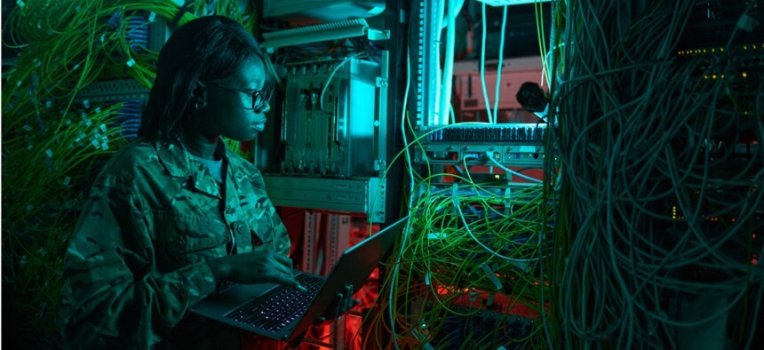K
Kathleen Martin
Guest
Bipartisan legislation introduced on Thursday would direct the Defense Department to make libraries of its vast datasets publicly available and readily accessible via a strategic pilot program aimed at accelerating software and artificial intelligence capabilities development.
Proposed by Sens. Jacky Rosen, D-Nev., and Rob Portman, R-Ohio, with companion text in the House, the Advancing American AI Innovation Act comes as experts are raising concerns that the United States is losing ground to China and other competitors in the global rush to implement the evolving technology.
“The field of artificial intelligence and the role it plays in our nation’s security are rapidly changing and expanding,” Rosen said. “Creating these data libraries will provide an entire sector of small startups and existing data companies with the tools to create AI models that are in line with the capabilities and needs of the DOD.”
In recent months, former and current Pentagon officials have been transparent about China’s unsettling potential to outpace the U.S. in AI deployments within the not-so-distant future. The DOD’s latest report on the country’s military power released this week highlighted how China is seriously prioritizing and speedily producing AI and “intelligentized” technologies to empower its military and economy. The National Security Commission on AI—an independent cadre formed to advise Congress and the president on the technology—also warned this year that America must better prepare to compete against China in this space.
AI and the emerging technologies associated with it work best with, and typically rely on, massive amounts of rich data. However, according to NSCAI’s research, government technologists are regularly denied access to software engineering tools and capabilities like vetted open-source support, software libraries, curated datasets, and infrastructures for large-scale collaboration. The federal digital workforce must gain enterprise-level technology assets that match those found in the private sector, the commission noted.
Rosen and Portman said this bill was based on that recommendation.
The notion is that positioning DOD’s data for increased access will help the public and private sectors synchronize their production of AI-driven resources that could impact the military, transportation, health care, manufacturing, national security policy and other realms.
Continue reading: https://www.nextgov.com/emerging-tech/2021/11/lawmakers-push-dod-share-its-data-help-us-make-ai-gains/186659/
Proposed by Sens. Jacky Rosen, D-Nev., and Rob Portman, R-Ohio, with companion text in the House, the Advancing American AI Innovation Act comes as experts are raising concerns that the United States is losing ground to China and other competitors in the global rush to implement the evolving technology.
“The field of artificial intelligence and the role it plays in our nation’s security are rapidly changing and expanding,” Rosen said. “Creating these data libraries will provide an entire sector of small startups and existing data companies with the tools to create AI models that are in line with the capabilities and needs of the DOD.”
In recent months, former and current Pentagon officials have been transparent about China’s unsettling potential to outpace the U.S. in AI deployments within the not-so-distant future. The DOD’s latest report on the country’s military power released this week highlighted how China is seriously prioritizing and speedily producing AI and “intelligentized” technologies to empower its military and economy. The National Security Commission on AI—an independent cadre formed to advise Congress and the president on the technology—also warned this year that America must better prepare to compete against China in this space.
AI and the emerging technologies associated with it work best with, and typically rely on, massive amounts of rich data. However, according to NSCAI’s research, government technologists are regularly denied access to software engineering tools and capabilities like vetted open-source support, software libraries, curated datasets, and infrastructures for large-scale collaboration. The federal digital workforce must gain enterprise-level technology assets that match those found in the private sector, the commission noted.
Rosen and Portman said this bill was based on that recommendation.
The notion is that positioning DOD’s data for increased access will help the public and private sectors synchronize their production of AI-driven resources that could impact the military, transportation, health care, manufacturing, national security policy and other realms.
Continue reading: https://www.nextgov.com/emerging-tech/2021/11/lawmakers-push-dod-share-its-data-help-us-make-ai-gains/186659/

